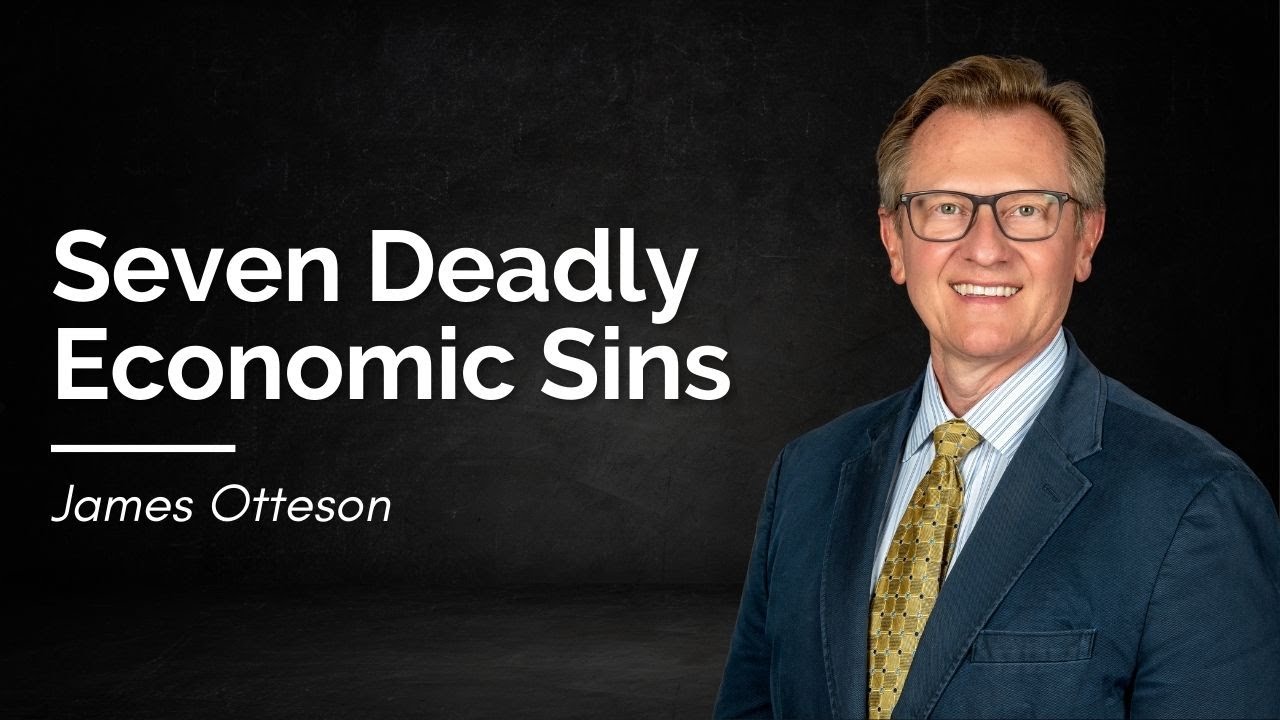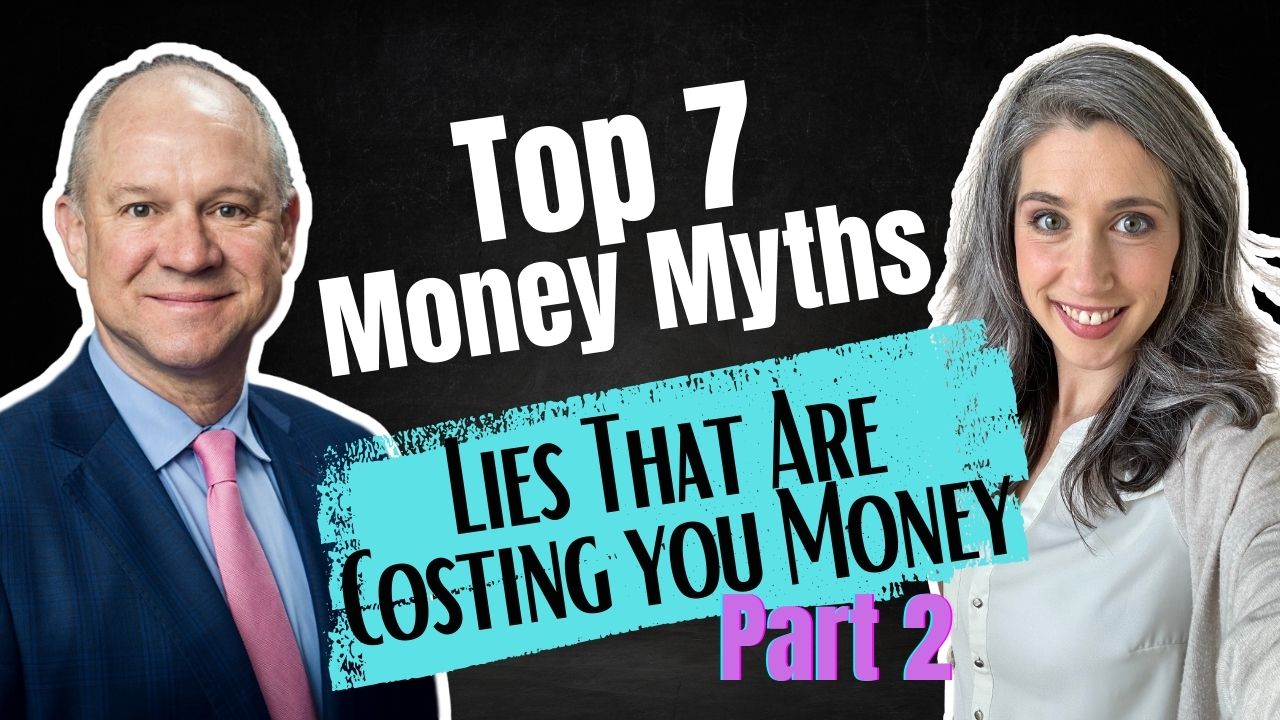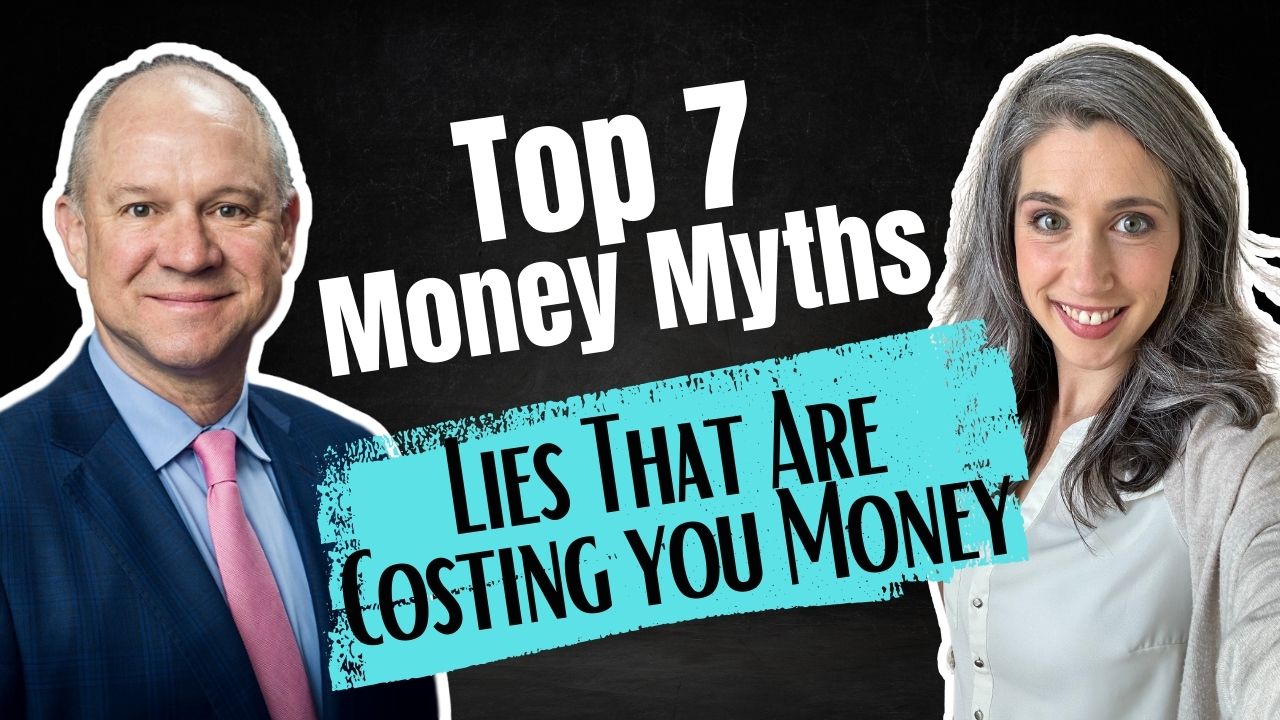
Seven Deadly Economic Sins, with James Otteson
You have heard of the Seven Deadly Sins: pride, greed, lust, envy, gluttony, wrath, and sloth. Each is a natural human weakness that impedes happiness. In addition to these vices, however, there are economic sins as well. And they, too, wreak havoc on our lives and in society. They can seem intuitively compelling, yet they lead to waste, loss, and forgone prosperity. James Otteson, the John T. Ryan Professor of Business Ethics at the University of Notre Dame, is the author of Seven Deadly Economic Sins.
In this thoughtful and compelling book, James Otteson tells the story of seven central economic fallacies. He explains why believing in these fallacies leads to mistakes and loss, and how to avoid costly errors. This, ultimately, enables us to live in peace and prosperity.
Today, on the podcast, we discuss:
- What economists agree about
- Why wealth creation is positive-sum, not zero-sum
- How market economies have enabled more prosperity than any other system of economics
- Why business can be moral and honorable
If you want a conversation about economics, philosophy, and how nations prosper… tune in now!
Podcast: Play in new window | Download (Duration: 1:02:21 — 71.3MB)
Subscribe: Apple Podcasts | Spotify | Android | Pandora | RSS | More
Table of contents
From Philosophy to Economics
In the blink of an eye, James Otteson found his path changed from medicine to philosophy, thanks to a required college course.
[7:40] “I thought if you went to college, you should either become a medical doctor or a lawyer. I thought those were the two things you became. So I was going to be a medical doctor, and I just happened to take a course that I was required to take, that was taught by a Classics professor… It led me into the great books program at Notre Dame.”
He notes that when he was in grad school in Chicago, one of his philosophical heroes was David Hume. In particular, he wanted to write his thesis on Hume’s moral theory. His research eventually led him to Adam Smith and his book, The Theory of Moral Sentiments, which was a pivotal moment in Otteson’s career and became the new subject of his dissertation. What he discovered was that very few people had really written on or responded to Smith’s book, and Otteson viewed it as an untapped well. It was Smith’s ideology on morals that sparked Otteson’s initial interest in the economy and politics.
Teaching Business Ethics
After teaching courses on the history of economic thought for some time, Otteson was asked to teach a course on business ethics. When working on the course and how he would approach it, Otteson learned there was very little consensus on how a business ethics course ought to go.
[11:41] “I thought it might be more interesting and maybe more productive, if instead of just looking at all the ways that business could go wrong, instead turning it around a little bit and asking: “Is there some kind of moral purpose that a life in business could actually serve?”
By reframing the class slightly, he could have students think through whether it is possible to be fully engaged in a business and also be a virtuous person.
Who is James Otteson’s Seven Deadly Economic Sins For?
James Otteson’s research heavily influenced his latest book, Seven Deadly Economic Sins. The book was written with an intelligent audience in mind, specifically, those who are not economists yet are interested in working well within the existing economy.
[14:10] “We all have our opinions about politics. But we also, many of us, have very strong opinions about economic matters even though, curiously, many of us have not studied economics.”
So while everyone may have an opinion about something like minimum wage, not everyone has read the academic literature on the topic. And in fairness, as Otteson shares, when you open an academic journal it’s full of equations that require technical knowledge. And even when you understand them, many economists disagree on how certain principles and equations can best apply to real life. It’s tough to break into, and tough to know who to listen to.
Otteson wrote Seven Deadly Economic Sins with that in mind. It’s written for people who have an interest in understanding how economic principles affect real life and inform decisions. And even though economists disagree on many things, there are fundamental principles that basically every economist agrees on.
Is Wealth a Zero Sum?
The first chapter in Seven Deadly Sins is about the belief that wealth is a zero-sum game. In order for this to be true, that would mean that when someone wins, someone is losing at a proportionate level. Therefore, when someone amasses a fortune, there are people who are being “kept” from wealth. And unfortunately, this is an incredibly pervasive myth.
One reason it may be such a common misunderstanding is that other coveted resources operate this way. While time is unlimited, individual access to time is finite. Once you’ve spent an hour doing something, that’s an hour you can never recover. And while wealth is technically infinite, people operate under the assumption that their access to wealth will be finite. However, that doesn’t have to be the case—it’s possible to create more wealth for yourself in the marketplace, without limiting someone else’s opportunity. You don’t have to steal from someone to build your wealth and business.
Think about it this way: if your friend has an iPhone, and you take the iPhone, that’s a zero-sum game. There’s only one phone and no ability to create more. However, if you offer your friend money for the iPhone and they agree to sell, it’s no longer zero-sum. There was a value exchange, otherwise, the exchange wouldn’t have happened. You benefit from a new phone, and your friend benefits from the money. And that is the power of the marketplace.
The Morality of Business
[49:18] “There’s been a decrease in the kind of entrepreneurial spirit that students have. They want to get a job with an already existing company. They’re less interested in striking out on their own and finding some problem that they can solve on their own… And that does worry me.”
[49:54] “Everybody should think about themselves as being something like an entrepreneur.”
The thing is, everyone has a problem to solve in the marketplace, even if they’re not entrepreneurially minded. Yet those who lack that entrepreneurial spirit may cannot see how that fits into the marketplace.
To maintain morality in business, Otteson stresses that it’s critical not to seek benefit for yourself at the expense of others. Yet, those who don’t view themselves entrepreneurially may exclude themselves from this moral standard.
[51:05] “There is some unique kind of value that only you can contribute to the world… I think the positive aspect of honorable business is [to] figure out what that is. Be entrepreneurial and innovative in your own life.”
About James Otteson
James Otteson earned his Bachelor of Arts degree from the Program of Liberal Studies at the University of Notre Dame in 1990. He spent his sophomore year studying abroad at the Universität Innsbruck in Austria.
After completing his undergraduate degree, he attended the University of Wisconsin–Milwaukee, earning a MA in Philosophy in 1992. He then joined the Philosophy Department at the University of Chicago, receiving a Ph.D. in 1997.
Upon graduating from Chicago, he took a position in the Philosophy Department at the University of Alabama, where he began as an assistant professor, received tenure, and rose to become department chair. In 2007, he accepted a position as a joint professor of philosophy and economics, and director of the honors program, at Yeshiva University in New York City, New York. In 2013, he moved to Wake Forest University, and in 2020, he returned to his alma mater and joined the faculty at the University of Notre Dame.
Otteson at Notre Dame
At Notre Dame, Otteson is the John T. Ryan Jr. Professor of Business Ethics, the Rex and Alice A. Martin Faculty Director of the Notre Dame Deloitte Center for Ethical Leadership, and the Faculty Director of the Business Honors Program.
He has held visiting scholar positions at the Social Philosophy and Policy Center, then located at Bowling Green State University; at the Centre for the Study of Scottish Philosophy, then located at the University of Aberdeen; at the Institute for Advanced Studies in Humanities at the University of Edinburgh; in the Economics and Philosophy Departments at the University of Missouri-St. Louis; and in the Government Department at Georgetown University. He has also taught in the Economics Department at New York University.
Otteson lectures widely on Adam Smith, classical liberalism, political economy, business ethics, and related issues, including for the Fund for American Studies, the Adam Smith Society, the Acton Institute, the Fraser Institute, and the Tikvah Fund.
Book A Strategy Call
Do you want to coordinate your finances so that everything works together to improve your life today, accelerate time and money freedom, and leave the greatest legacy? We can help! Book an Introductory Call with our team today https://themoneyadvantage.com/calendar/, and find out how Privatized Banking, alternative investments, or cash flow strategies can help you accomplish your goals better and faster. That being said, if you want to find out more about how the Infinite Banking Concept gives you the most safety, liquidity, and growth… plus boosts your investment returns, and guarantees a legacy, go to https://privatizedbankingsecrets.com/freeguide to learn more.
Becoming Your Own Banker, Part 27: 7 Money Myths that are Costing You, Continued
Is what you think about money actually true? Is it helping or hurting you? Moving you forward and expanding your influence, or limiting you and your potential? If you joined us last week, you know that in true Bruce and Rachel fashion, we only covered half of our intended conversation, so we’re back to reveal…
Read MoreBecoming Your Own Banker, Part 26: Top 7 Money Myths, Lies That Are Costing You Money
What if what you think about money turned out not to be true? Even worse, what if you’re believing lies that are costing you money? Embark on a journey as we unravel the twisted web of money myths holding you back from true wealth. Inspired by Nelson Nash and flavored with insights from David Stearns,…
Read More


